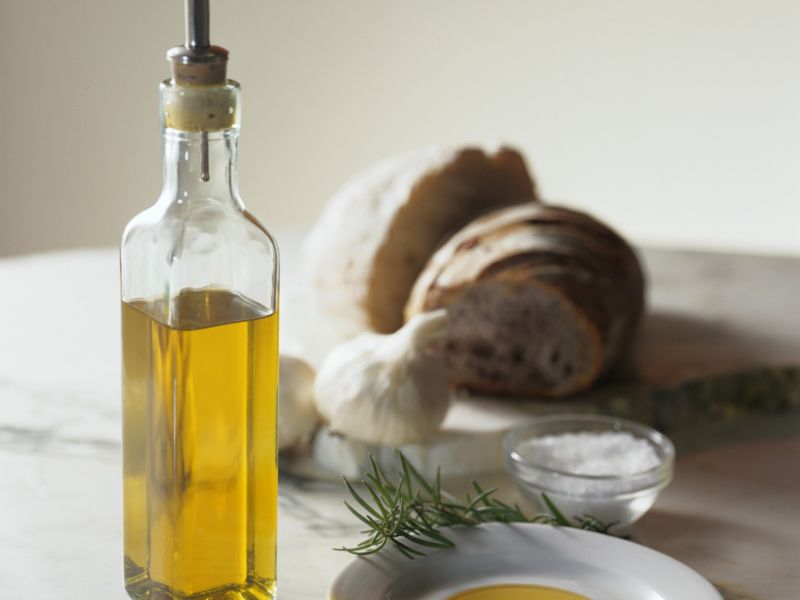By Amy Norton
HealthDay Reporter

THURSDAY, March 7, 2019 (HealthDay News) -- If you're obese and you want to do your heart a favor, try adding some olive oil to your diet.
So suggests new research, which found that healthy but severely obese patients who ate olive oil at least once a week had lower platelet activation. That means their blood showed less propensity toward forming clots -- which might help lower their risk of heart attack or stroke.
But the findings do not prove that olive oil is the reason for the benefit.
"This is an observational study. It doesn't show cause and effect," said lead researcher Dr. Sean Heffron, a preventive cardiologist at NYU Langone Medical Center in New York City.
But, he added, there was no evidence that other diet components -- such as red meat, butter, or fruits and vegetables -- were related to patients' platelet activity. Neither were exercise habits.
So that raises the possibility that olive oil, itself, has anti-clotting effects, according to Heffron.
The study is to be presented Thursday at a meeting of the American Heart Association, in Houston. Findings reported at meetings are generally considered preliminary until they are published in a peer-reviewed journal.
Olive oil is a staple of the classic Mediterranean diet -- which, based on numerous studies, can help lower the risk of heart disease and stroke. According to Heffron, the new findings may shed light on one reason why.
Connie Diekman is director of university nutrition at Washington University in St. Louis. She said the findings add to evidence that olive oil can be part of heart-friendly diet -- but it's too early to say it has specific benefits on blood clotting.
"So many variables impact our health," said Diekman, who wasn't involved with the research, "and this study is one piece of the bigger answer on what we should do to eat a healthful diet."
The study, which was funded by the U.S. National Institutes of Health, included 63 healthy adults who were severely obese -- with an average body mass index (BMI) of 44 (obesity is defined as having a BMI of 30 or higher). They completed questionnaires on their diet and lifestyle habits.
Heffron and colleagues used blood samples to study how each person's platelets responded to an "agonist" -- a substance that can promote clotting.
They found that compared with other study participants, those who consumed olive oil at least once a week showed less platelet activation. And the more olive oil people ate, the less prone their blood cells were to clumping together.
The fact that all of the study participants were substantially overweight is important, according to Heffron. The findings suggest that healthy eating habits may have benefits that cannot be seen -- regardless of weight, he said.
On the other hand, Diekman said, it's not clear whether the findings would translate to people with lower weights, since there may be metabolic differences.
No one is calling olive oil a magic bullet, either.
"Just adding a tablespoon of olive oil to what you're already eating probably isn't wise," Heffron said. "But replacing animal fat or carbohydrates with olive oil may be."
Diekman also stressed the importance of overall diet.
"I would encourage people to use this study as one more reminder that plant fats are more healthful than animal fats -- but that our whole diet is the key to our health," Diekman said.
Besides eating more plant-based fats, she recommended getting plenty of fruits and vegetables, fiber-rich whole grains, and "lean" sources of protein.
More information
The American Heart Association has advice on heart-healthy eating.
Back

The news stories provided in Health News and our Health-E News Newsletter are a service of the nationally syndicated HealthDay® news and information company. Stories refer to national trends and breaking health news, and are not necessarily indicative of or always supported by our facility and providers. This information is provided for informational and educational purposes only, and is not intended to be a substitute for medical advice, diagnosis, or treatment.






